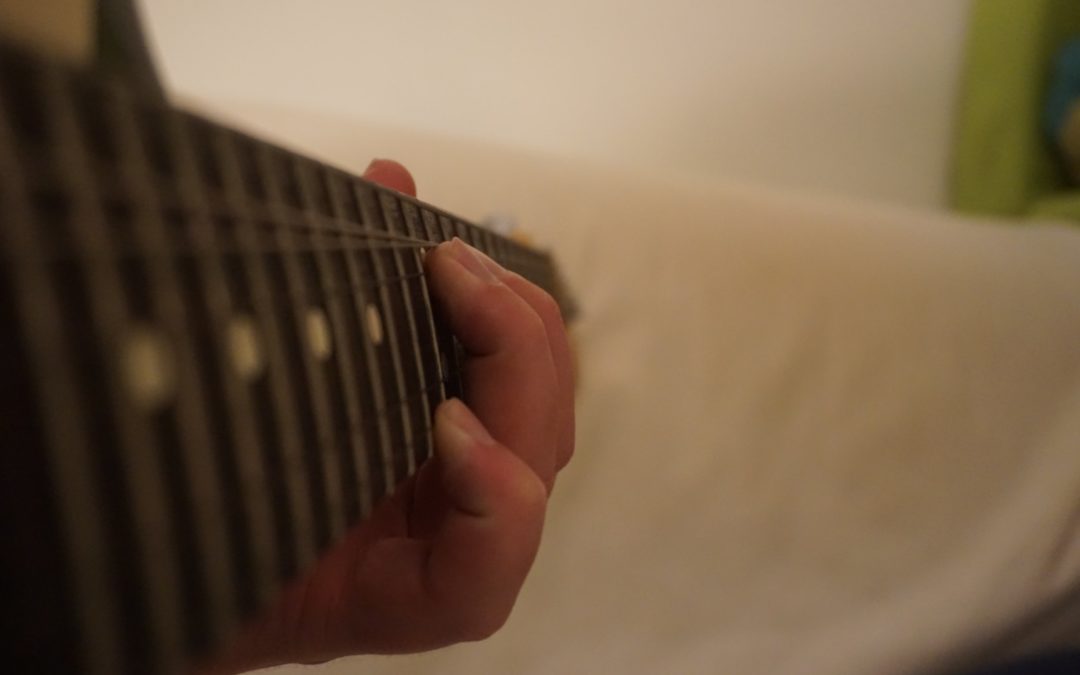This week’s post is inspired by one of our subscribers so thanks again for all you support, readership and feedback.
For any beginner player (and even intermediate or advanced) improvisation can be daunting, I’ve seen this many times on students’ faces when I’ve suggested improvisation during a lesson.
So what I will do here is outline some key principles of improvisation, and then some very practical advice, and then finally some tips to help overcome the fear of improvisation.
Principles of improvisation:
While improvisation can be used as a way to show off skills, the primary goal is more about creating melodies, on the fly, that are pleasing to the ear. Your goal is to capture that unique musical moment in the notes you play, and to actually take a listener on a journey.. This is really the exact same principle as a song, but just a much shorter version.
1. Keep the scale choice simple
If you’re just starting, don’t overwhelm yourself by trying to improvise in multiple different scale patterns that you’ve just memorised. Start with 1 pattern (I recommend pattern 1 of the minor pentatonic scale). This is easy to remember and gives you a good selection of notes that will always sound good. The more you can free yourself from worrying about whether you are playing wrong notes, the more you can focus on creating nice melodies and this is much more enjoyable.
2. 3-note melodies
One great way to avoid being overwhelmed by improvisation is to just start with short 3-note melodies. Rather than thinking that you need to be constantly playing notes, just play short melodies that only consist of 3 notes, then, let it breathe, do it again. Seeing as this is a bit more simple, you can experiment a little bit with the rhythm you play the melodies.
3. YouTube Jam Tracks
These are a fantastic resource and something I’m always telling my students about and especially great for those self-conscious about trying to improvise in front of others. Tap into this very vast resource designed specifically for you to improvise along to.
4. You can repeat things
Don’t be afraid to repeat an idea you like. You can also develop and grow these ideas the more you experiment with them. You don’t have to constantly move on to the next idea. Also, something that is commonly misunderstood by beginner improvisers, you can actually repeat the same notes. This can give much more emphasis on the rhythm that you are playing.
5. You don’t always have to be playing.
It’s easy to feel pressure to play more notes, but just relax and give yourself some space in between ideas.
I’ve decided that I will post on this again, looking at some tips of expression and further development still at a beginner level. However, I’d rather not include that in this post as I believe it is most beneficial to just focus on a small amount of things when beginning improvisation.
Now it’s time for a few bits of advice to help overcome any fear of improvisation.
1. You will most probably suck at first
I sucked at improvising at first, the vast majority of people did. Nowadays it is much more realised that success is the result of many failures. The same is mostly true for improvisation. You’re experimenting, you’re trying new things and you’re developing the skills and by making mistakes, and also finding things that sound great, you WILL improve.
2. Get some perspective
For some reason, people can get extremely self-conscious when playing music, like it defines them. IT DOESNT. It’s not the end of the world if you stuff up, it’s just mistakes and learning. Also, within that, there are many aspects of playing guitar, ability to improvise is just one of many aspects, so your level as a guitarist is not even determined just by how you improvise.
3. Its the weaknesses that need practice.
It can be quite demoralising to practice something that you feel you aren’t good at, especially if it’s taking up a lot of your time. So it’s important to remember to keep your eye on that goal of improvement, and gradual improvement, just aiming to be better than you were yesterday. As a reminder to yourself, think about how far you’ve come in other aspects of your playing, and how these at one point weren’t as strong as they are now.
4. Never compare
Look to others for inspiration? Yes. Compare yourself with them? No. There are many reasons not to do this but I’ll highlight 2.
1 – You’ll either compare yourself with someone with way more experience and be demoralised, or someone with less and be complacent.
2 – This is your journey and your voice. You’re end goal isn’t to be able to sound like a particular person, its to sound like the best version of you.
I hope this has laid out some helpful tips, I love seeing people getting creative with their music through improvisation so it is quite a joy to get to be able to share these thoughts with you.
Thank you again for reading, please remember to like, subscribe, comment and don’t forget to contact us for any enquiries about lessons.
Paul
TMTG
